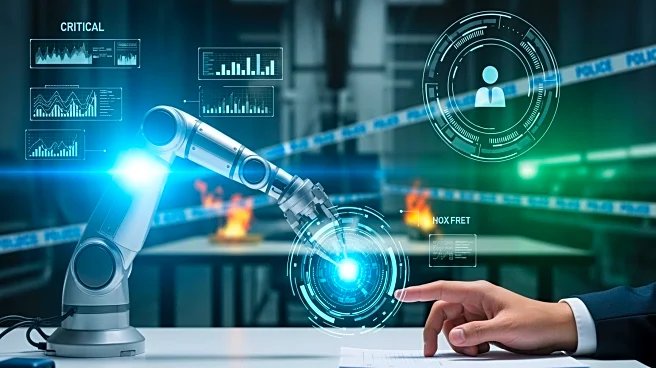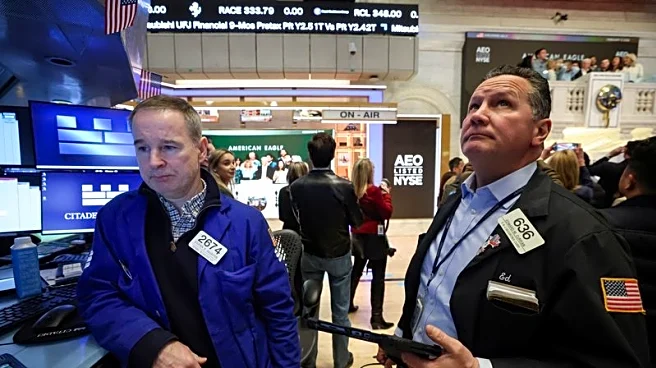What's Happening?
Jensen Huang, CEO of Nvidia, has predicted that future workforces will consist of both human and digital workers. In a recent interview, Huang discussed the potential for AI systems to be integrated into
various roles, such as digital nurses and accountants. He emphasized the importance of onboarding processes to incorporate AI into company cultures. This shift is expected to create a market worth trillions of dollars, as businesses adapt to include AI in their operations.
Why It's Important?
The integration of AI into the workforce represents a significant shift in how businesses operate, potentially increasing efficiency and productivity. However, it also raises concerns about job displacement and the need for new skills among human workers. Companies that successfully integrate AI could gain a competitive edge, while those that fail to adapt may struggle. The development also highlights the need for policies and training programs to support workers in transitioning to this new environment.
What's Next?
As AI becomes more prevalent, companies will need to develop strategies for managing mixed workforces. This includes redefining performance metrics and upskilling employees. The transition may also prompt regulatory changes to address ethical and legal considerations surrounding AI in the workplace.












